Search Results
Showing results 1 to 20 of 40
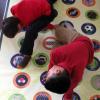
Exploring Size: StretchAbility
Source Institutions
In this game, learners explore the different sizes of things in the world. In this Twister-like game, learners must place a hand or foot on a circle of the right scale - macro, micro, or nano.
Pour Some: Measure Serving Size
Source Institutions
Make snack time into measuring time and learn to read Nutrition Facts labels. Try this when you’re using “pourable” foods, such as cereal, yoghurt, or juice.

Exploring Size: Scented Solutions
Source Institutions
This is an activity in which learners will find that they can detect differences in concentration better with their nose (smelling) than with their eyes (seeing).
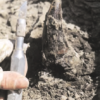
Compare Dinosaur Body Parts
Source Institutions
In this activity, learners explore the size and scale of dinosaurs. Learners listen to "The Littlest Dinosaurs" by Bernard Most to learn about the different sizes of dinosaurs.
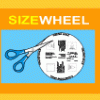
Size Wheel
Source Institutions
In this fun sticker activity, learners will create a size wheel with images of objects of different size, from macroscopic scale (like an ant) to nanoscale (like DNA).
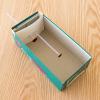
Size and Distance
Source Institutions
In this activity about depth perception, learners create an optical illusion in a shoe box.

Exploring Size: Measure Yourself
Source Institutions
In this activity, learners mark their height on a height chart and discover how tall they are in nanometers.
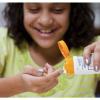
Invisible Sunblock
Source Institutions
In this activity, learners find out why some mineral sunblock rubs in clear. Learners compare nano and non-nano sunblocks and discover how particle size affects visibility.
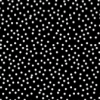
Invisible Sunblock
Source Institutions
This is a hands-on activity exploring how nanoscale particles are used in mineral sunblocks to increase their transparency.
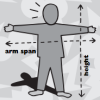
Are you a Square or a Rectangle?
Source Institutions
In this activity, learners investigate whether more people are squares or rectangles. People with similarly sized heights and arm spans are classified as squares.
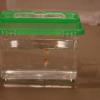
Fish Features and Habitats
Source Institutions
In this activity, learners observe live fish in tanks to consider how their body structures are related to their behaviors and habitats.

Smelly Balloons
Source Institutions
In this activity, learners sniff out scents hidden in balloons! After investigating, learners discover we sometimes can use another sense (smell) to detect things too small to see.
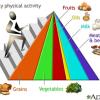
In Proportion
Source Institutions
Through this nutrition activity (page 5 of the PDF), learners will understand—and probably be surprised by—how big serving sizes of various foods should be.
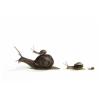
Small Snails, Enormous Elephants
Source Institutions
This activity (located on page 2 of PDF) introduces learners to the real size of animals using nonstandard measurement.

How Big Were the Dinosaurs?
Source Institutions
In this activity (located on page 4 of PDF), learners gain insight into the actual size of dinosaurs and practice making estimations and measurements.
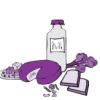
Building Blocks
Source Institutions
In this activity (page 32 of PDF), learners investigate the nutritional needs of healthy bones and muscles.
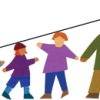
Line Up: Using Math To Stand In Line
Source Institutions
Put math of measurement into lining up — and make waiting in line fun. Choose a size characteristic that learners can physically compare, such as foot length or hair length.
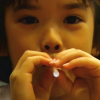
Oboe? Oh, Boy!
Source Institutions
In this activity, learners create a straw oboe to explore sound and pitch.
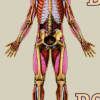
Sketch a Skeleton
Source Institutions
In this activity (on pages 15-18 of PDF), learners make a life-size two-dimensional paper model of their own skeletons.
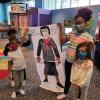
Body Biographies
Source Institutions
In this activity, learners will learn about a person they admire (famous, family or otherwise) or even themselves and create a life-sized silhouette.
